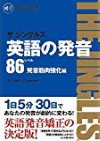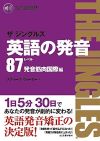Steve Walkerからのメッセージ
<音子>の概念
こんにちは。
今日は、<音子>という概念の発見によりもたらされた
スピーチサイエンスの新しい見地について皆様にご紹介いたします。
<音子>の概念は、発話運動制御と音声知覚の研究に革新をもたらしました。
発話運動制御と音声知覚の分析に携わるスピーチサイエンティスト、
ネイティブのような発音を指導する立場にある外国語教育に従事する教育者、
そして、限りなくネイティブに近い目標言語の発音を身につけることを望む学習者、
これら全ての方々にとって、<音子>の概念は極めて重要な意義を持ちます。
一つに、<音子>の概念を基にして目標言語の発音に関する発話運動制御能力を
数学的に定量化する公式が導出されたことがあります。この公式を使うことよって、
異音子の発達段階を一定の基準に基づき測定することができるのです。
<音子>の概念は、このような客観的な分析に有用であるのみでなく、
言語の保存という主観的な分野にも意義を持ちます。植物や動物の種を絶滅から
守るのが私たちにとって大切であるのと同様に、現存する多種多様な言語や方言の
音韻を分析し保存するための手段を持つことが大切であると、私は感じています。
ザ ジングルズの公式や発話のジェスチャーの数値化という客観的な尺度を利用する
ことによって、発話運動制御研究の応用分野である言語の保存や語学教育という
主観的な分野を開拓していくことが、私、そして私と志を同じくする
ザ ジングルズメンバーの皆様の役割なのです。
スティーブ ウォーカー
Steve Walker からのメッセージ
皆様、明けましておめでとうございます。
新しい年を始めるにあたり、言語の速度生産について簡単にお話したいと
思います。基本的には、速度には2種類あります。「ゆっくり注意深く」と
「普通の速さ」です。通常は「普通の速さ」が最も頻繁に使われています。
「ゆっくり注意深く」は聞き手に要点を強調したり、的確に判断して欲しい
ときに使います。
私たち成人が新しい言語を学ぶときは、言語によって生産速度が異なって
いることをしばしば感じます。しかし、人々が言語の速度を判断する能力は
限られています。それゆえ、母国語でない外国語の音の組み合わせを自分の
国の言語のようにいえない場合は、それら構成されている音の組み合わせの
内容を判断することは出来ません。
しかも、これが自分たちの母国語の言語的な特徴を基準に行なわれるので、
速度の判断は「ゆっくり」または「速い」のどちらかになってしまいます。
もちろん、これは正確な判断ではありません。ベトナム語は英語より多少速く、
広東語はイタリア語より速いという声もあります。ある程度は事実です。
ただし、世界の言語の速度的な違いは人々が考えるほど大きくはありません。
一例として、スノウボードが挙げられます。
スノウボードをするときは、「ゆっくり」よりも流れに乗って「速く」進む
ほうが楽ですね。(草の上にわずかに雪があるくらいでしたら「ゆっくり」も
可能かもしれませんが…。)別の例では「走ること」です。「速く走る」こと
の方が「ゆっくり」走るより楽なのです。歩くことも同様ですが、歩く場合は
あえて早歩きをするよりもゆっくり普通に歩いたほうが自然で簡単です。
つまり、スノウボードの設計は速い速度に適していますし、走るにはふさわしい
足運びが必要で、歩くにはそれなりの足運びがあるわけです。
従って「ただ早く話す」ことを意識するのではなく、ザ ジングルズの英語発音
矯正で行われるからだの発達を通した速度別の運動制御能力を活かすことが大切です。
Steve Walker
Steve Walkerからのメッセージ
親愛なる地球人の皆様へ
みなさんは、テレビの相撲中継をご覧になるときさえ、いつの間にか広まった
ぞっとするような英語表現を耳にしませんか。
確かに、相撲存続の為には国際化をしなくてはなりません。
また、相撲力士は日本男児のみという旧式の流儀は、だいぶ前に終わりました。
実際、強い力士はモンゴル人や日本人ではない人たちのようです。
しかし、このこととは違うお話ではないでしょうか。。。
また、日本人の相撲解説者が、その力士について、
幕の内(またはそれ以上)の階級まで下がりましたが、十両(級)に
「カムバックしてきました」と述べたのを聞き、私は衝撃を受けました。
その解説者が日本の伝統的な国技を表現するために使用した英語表現が、
私を悩ますのには二つの理由があります。
一つは、解説者の無知が垣間見えたことです。実際にこの方は “愚か” でした。
級を落としたときは、”カムバック” ではなく、むしろ “ゴーバック” とするべきでした。
2つ目はこの解説者は無闇やたらと日本語に英語表現を挿入しようとするのが感じ取られました。
死滅しそうな植物や動物はどんな穏やかな脅威に対してさえも身を守ることはできません。
同様に、消滅の危機に瀕している言語は母語の用語に外国語の用語を用いるという
侮辱のを積み重ねられると存在を守ることが出来ません。
その為、この現代社会で相撲が存続するために言語を適合させなければならないという
事実の一方で、その為に日本語が英語の単語を用いなければならないということに
絶対に従ってはなりません。
英語の “power” という単語は、日本語で放送されている相撲のときには使われるべきで
ありませんし、むしろ、日本語の “ちから” という用語が使われるべきです。
さらに、皆さんお願いですから “healthy” は “元気” に代用するべきではありません。
また、どうか、日本人のみなさま、ご自分たちの言語に侮辱が加えれることに対して、
公然と意見を言ってください。
Kaori Akasaki, Jingles Instructor
Steve Walker, Earthsaver and Jingles Creator
Dear Fellow Earthlings,
The insidious creep of English can be felt even when you watch sumo wrestling on TV.
True, sumo must internationalize to survive. The old ways of only Japanese men
being sumo wrestlers are long behind us. In fact, it seems that it is Mongolia and
NOT Japan that has the best sumo wrestliers. But that is a different story…
I was shocked to hear a Japanese sumo commentator mention a sumo wrestler as having
“come back” to the juryo division of sumo, down a notch from the makunouchi (or top)
division. That commentator’s use of an English term for describing a traditional sport
of Japan was distressing to me for two reasons:
For one thing, it showed the ignorance of the commentator – actually,
the STUPIDITY of the guy. When one is demoted, one does not “come” back
– but rather has to “GO back” to a lower ranking.
Two, it showed that the commentator felt he could start inserting English expressions at will
into the Japanese language. A dying plant or animal cannot defend itself against even
the mildest threat. Similarly, a dying language cannot do much when indignity is heaped
upon it in the form of the use of foreign terms over native terms.
So, while it is true that sumo must adapt in order to survive in this modern world,
it does NOT follow that Japanese has to adopt English words to make that happen!
The English word “power” should not be used during Japanese language telecasting
of sumo, but rather the Japanese term “chikara” should be used. And, woe to us all,
“healthy” should not take the place of “genki”. Please, Japanese people!
Please speak out against these indignities being heaped onto your language!
Steve Walker, Earthsaver and Jingles Creator
Kaori Akasaki, Jingles Instructor
Steve Walkerからのメッセージ
Dear Fellow Earthlings,
Starting June 16, 2014, The headquarters for “The Jingles” (officially,
“The Japan Foundation for English Pronunciation-Summit Enterprises” ) is
now located in the Ginza District of Tokyo, Japan. The day before the opening my staff and
I had a celebration at our new location. And on the 16th, we had our first sessions at
the new headquarters.
I am extremely thankful to my family and to my staff for all the support
they have given me as I have pursued my Jingles dream. All of this could not
have happened without that support. I am also thankful to God for the way
he has provided me with the means to see my various projects through.
With the publication of my original book about “The Jingles” back in 1996,
my former “English conversation” school became a school specializing in pronunciation and
listening comprehension. It started in the Tsurumi Ward of Yokohama the day after
my first book went on sale and, in the ensuing 18 years, has led me literally to the
“summit”, with The Jingles’ headquarters now located on Namiki Street in Ginza.
From our new, perfect location, I hope to provide my increasingly capable Jingles instructors
with the opportunity to help ever growing numbers of people to realize their pronunciation dreams.
Truly, I find myself at the top, at the summit!
The attention afforded to me as a result should help me to make additional dreams
(for myself and for other people as well) come true in the upcoming years.
As speakers of Seneca say: “I am thankful.”
Steve Walker, Earthsaver and Jingles Creator
Steve Walkerからのメッセージ
今回は、ザ ジングルズの開発者であり、言語保護活動家、
環境保護活動家のSteve Walkerのブログの一部をご紹介いたします。
Mr.Walkerはザ ジングルズ以外にも、様々な活動に関わっており、
世界で話し手が激減し消えかかっている言語を保護復活したり、
環境保護などにも積極的に参加しています。
ブログは英語で書かれていますので、英語学習を兼ねて
Mr.Walkerの日々の活動の様子をお楽しみください!
A key element in Jingles training is the employment of the TRAINING MODE. Whereas English (and all other languages) is spoken through the employment of the “regular mode” (each “regular mode” with its own language specific set of speech motor skills), the TRAINING MODE is an alternate system used, in the main, for having Jingles clients go through their paces as they seek to develop nativelike or near nativelike speech motor skills employment techniques for the “target language(s)” of their choice.
Originally the TRAINING MODE was specifically created along the lines of athletic training, whereby the learner (or “client”) is called upon to use kerm speech motor skills techniques to degrees over and above those called for in competition. Based on this principle, Jingles clients are called upon to “push themselves to various limits” as they create the power, endurance, flexibility, and technique which characterize their target allophonomes. Jingles training, built upon a base of TRAINING MODE motor skills techniques, thus guarantees that the learner/client achieves parity with the speech motor skills capabilities of native speakers of the language or languages in question.
The TRAINING MODE (TM) also has three additional functions:
1) The instructor can use the TM to probe for weaknesses that mere analysis
of “regular mode” production cannot discover.
2) The instructor often finds it very helpful to describe certain gestures by
saying them in the TM, which (certainly to more advanced Jingles clients) is
much more transparent than the “regular mode” is.
3) For clients whose target language allophonomes have already reached the
native level (and, indeed, for native speakers of the language in question who
wish to polish their already native-level skills further!), employment of the TM
is proving to be quite helpful as a mild form of “shock treatment”, which renders
target language allophonomes more malleable, with the resultant defossilization
allowing for efficacious, high-level pronunciation development.
So there you have one of the Jingles theory’s most important concepts – that of the TRAINING MODE!
When the above mentioned manifestations of this concept are properly incorporated into Jingles training by our staff of very capable instructors, the results clients experience are absolutely phenomenal.
Steve Walkerの『Save Languages, Save Earth!』
http://ameblo.jp/earthsaver110/





